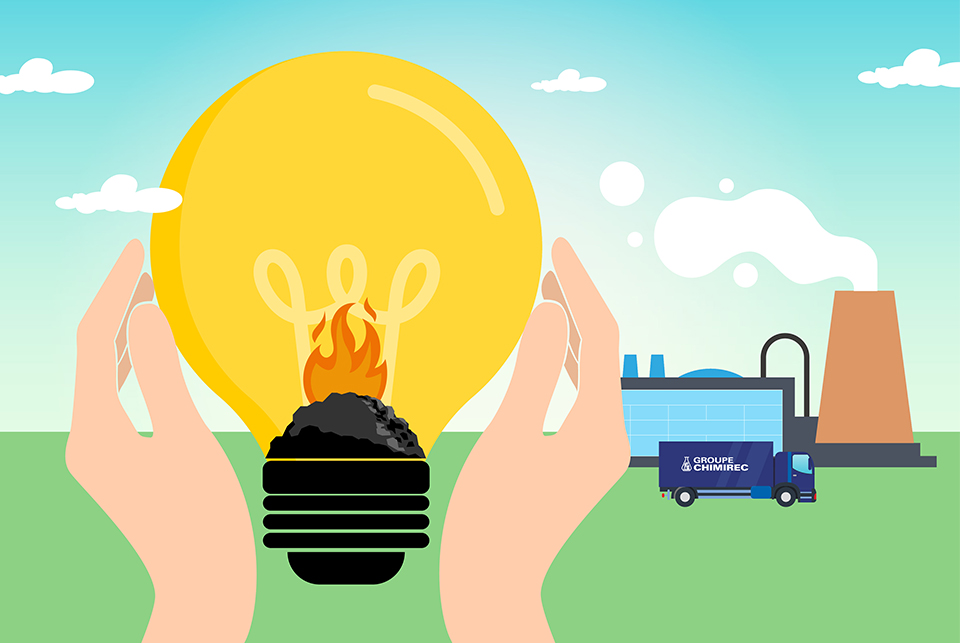The CHIMIREC Group, a responsible energy supplier: energy substitution fuel

At a time when the cost of raw materials is rising sharply and the price of a barrel of oil continues to soar, a third problem has emerged: Energy independence. This has been emphasised by the war in Ukraine and the question of Russian gas supplies. At the same time, the recent report published by the IPCC once again highlights the urgency of the energy transition.
In this more than tense context, there is growing interest in energy substitution fuels (ESF) and the potential they offer. For CHIMIREC, this interest dates to 2013, when the Group set up the first ESF production line at its French subsidiary CHIMIREC Javené. Recently, CHIMIREC Beaucaire also started to manufacture ESF.
On the strength of this expertise acquired in France, the Group was able to export its know-how to its international subsidiaries in Morocco and in Turkey. In both countries, local demand is growing steadily and the quality of the ESF supplied by our subsidiaries is making a difference in the market, thanks to its high calorific value. As a result, development projects are currently underway to increase ESF's production capacity.
For our operations in Canada and Poland, the appeal of energy recovery also exists. The CHIMIREC Group is doing its utmost to ensure that they will soon be equipped with the production tools necessary for the manufacture of ESF.
A new look at ESF
In just a few decades, the way in which the waste management sector is viewed has changed radically. Awareness of the need to preserve the environment and save natural resources, and the need to reduce the carbon footprint generated by human activities, have led to the realisation that we need to move away from a linear economy to a circular economy. Logically, this has contributed greatly to the recognition and enhancement of the essential role of waste management professions. And hazardous waste.
From the outset, without being obliged to do so by any environmental legislation whatsoever, the CHIMIREC Group's philosophy has been to seek out the possibilities of recovery, recycling, and reuse in waste collected. Being part of a sustainable development approach, and becoming a contributor to the circular economy are among the Group's proprietary objectives, in line with the Energy Transition Law for Green Growth of August 17, 2015.
The three key strengths of ESF
- Turning waste into an energy resource
CHIMIREC collects paint residues, industrial and hydrocarbon sludges, glues and sealants, soiled packaging and materials, and filtering materials from oil filters from its industrial clients. These are waste products with a high calorific value. Rather than storing them in landfill, CHIMIREC uses them as a substitute fuel for oil, which can be used, for example, by cement manufacturers and steam producers.
- Decarbonising industrial activities
The use of ESF enables industries to minimise the carbon footprint of their activities. The energy performance of this recovered fuel effectively leads to a significant reduction in oil consumption.
- Contributing to energy independence
At a time when the question of energy independence is becoming increasingly acute, ESF has the dual advantage of meeting the criteria of the circular economy while at the same time providing a significant energy opportunity.
The CHIMIREC Group and ESF
In 2021:
- in France: 26,000 tonnes/year of waste were recovered as energy substitute fuel.
- Abroad: 65,000 tonnes/year of waste were recovered as energy substitute fuel.
This represents a saving of approximately 40,000 tonnes of oil equivalent.
Published : 2022-04-26

